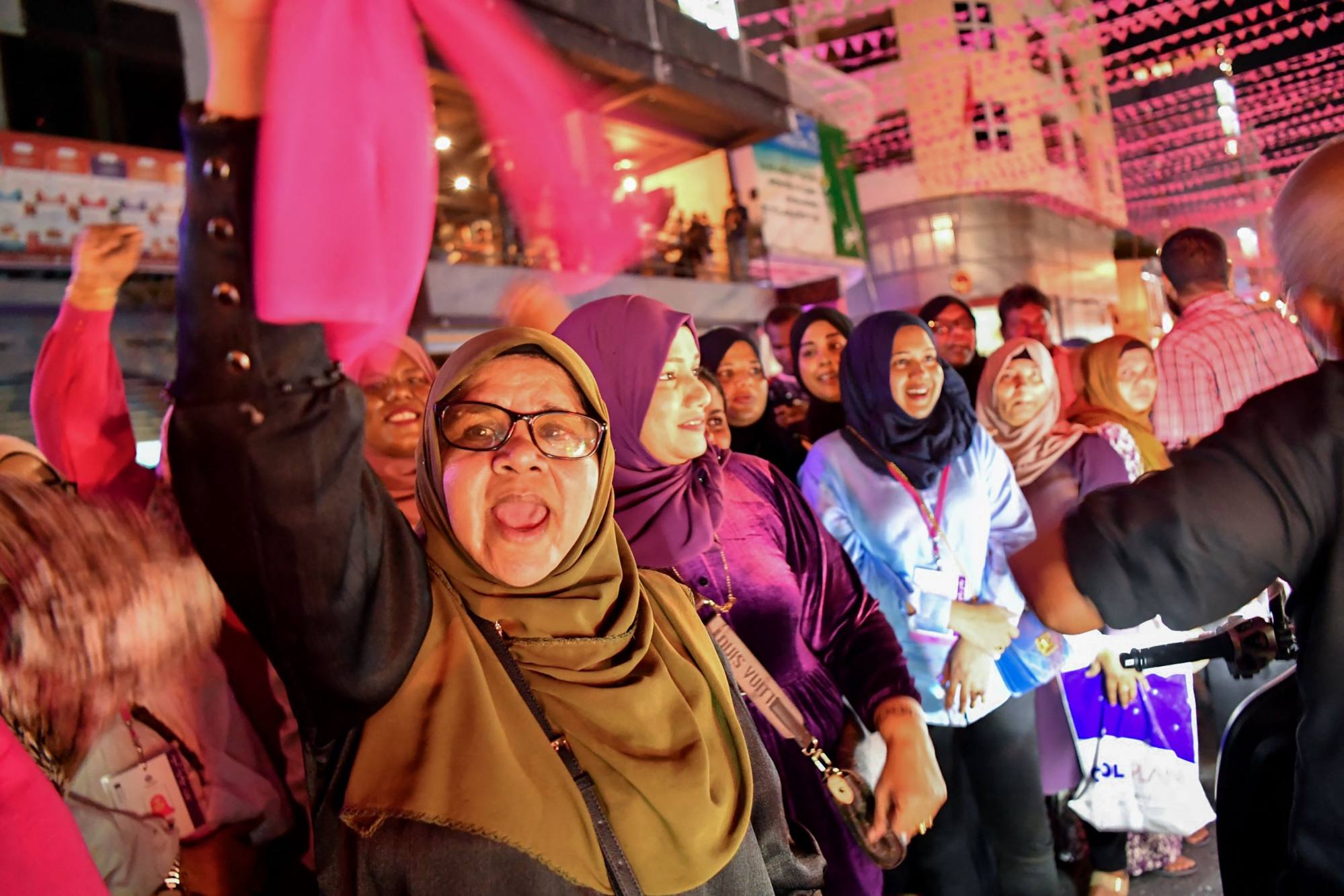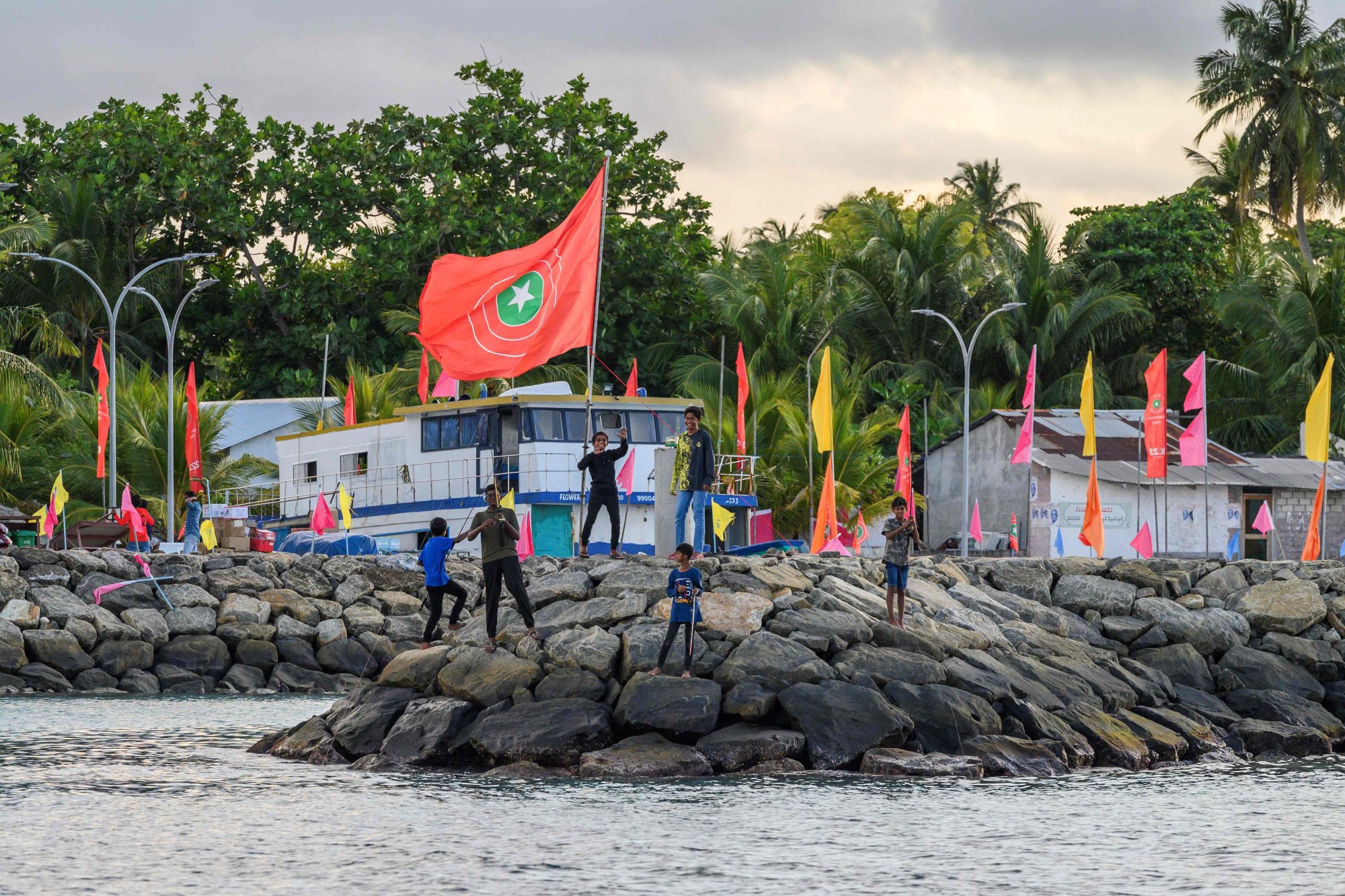
Is ‘India Out’ of the Maldives as China-friendly leader Mohamed Muizzu takes charge?
- President-elect Mohamed Muizzu has made it a priority to cut India’s military presence in the Maldives, diluting New Delhi’s role as ‘first responder’
- His election calls into question Male’s commitment to the US’ Indo-Pacific strategy – as analysts say China will now look to ‘widen its footprint’

“The people have decided and don’t want Indian troops to stay in the Maldives. Therefore, foreign soldiers cannot be here against our sentiments, against our will,” Muizzu, 45, was quoted as saying by local media.
It’s unknown exactly how many Indian military personnel are stationed in the Maldives, but the island state’s armed forces told a parliamentary committee in 2021 that the number was 75 – ostensibly there to maintain aircraft that Delhi gifted Male.
Maldives’ new pro-China president-elect vows to kick out Indian military
Muizzu’s People’s National Congress and its coalition partner the Progressive Party of Maldives ran on an “India Out” platform that took aim at Delhi’s traditional role in Male’s foreign-policy calculus. By contrast, outgoing president Solih had committed the Maldives to an “India First” approach and called Delhi “our first responder in times of crisis”.
“The desire for the Maldives as a smaller state to maintain its sovereignty in the face of an increasingly challenging environment of strategic competition” was “at the heart of the campaign discussion about India”, said Nilanthi Samaranayake, an adjunct fellow at the East-West Centre in Washington and a visiting expert at the United States Institute of Peace studying smaller South Asian countries and Indian Ocean security. “This desire is not limited to the Maldives, but is shared by other smaller South Asian countries.”
Setback for India
India was one of the first countries to establish diplomatic relations with the Maldives and has close-knit people-to-people, economic, trade and defence ties.
In 1988, then-president Maumoon Abdul Gayoom sought India’s help to deal with an attempted coup. Delhi responded by sending hundreds of paratroopers to assist the Maldivian government regain control of the capital.
But anti-India sentiment began to grow in Male around the turn of the century, amid accusations that an Indian construction company had bribed a former president to win a US$511 million contract – which was later cancelled – to run the country’s main airport.

Yameen’s government had called on Delhi to take back some of the aircraft it gifted the Maldives and the former leader, who was transferred to house arrest from prison on October 1 following Muizzu’s victory, openly courted China for the five years he was in power.
Further suspicions were raised about India’s military presence in the Maldives with the 2021 signing of an agreement to build a maintenance and repair hub for the island state’s coastguard at Uthuru Thila Falhu – a project Yameen last year called a cover for a new Indian naval base.
Gulbin Sultana, an associate fellow at Delhi’s Manohar Parrikar Institute of Defence Studies and Analyses who focuses on the Maldives, said: “The India Out campaign was not the only factor that drove Muizzu to victory, but it was surely one of the important factors in these polls.”
Social media campaigns on the issue “attracted a lot of youth”, Sultana said.
‘India out’, ‘China in’ under new Maldives president? Not so fast
But there are suspicions among some former officials that much of this anti-India sentiment was being driven by a political agenda, rather than the reality on the ground.
Moosa Jaleel, a retired major general who served as the Maldives’ national defence chief under former president Yameen, called the “allegations around Indian military presence … a campaign gimmick”.
“This campaign has not swayed ordinary Maldivians. The public sentiment around Indians remains where it was before the polls,” he told This Week in Asia, adding that people-to-people ties would persist, despite Muizzu’s victory.

Pivot to China?
“China will try and widen its footprint in the Maldives” in the wake of Muizzu’s victory, said Manohar Parrikar Institute of Defence Studies and Analyses’ Sultana.
“We will definitely see more developmental and infrastructural projects from Beijing, but the Maldives is unlikely to depend entirely on China and, instead, build relations with other countries too,” she said.
Talks over a free-trade agreement between the Maldives and China are also likely to resume, allowing Beijing to make deeper economic inroads into the country, Sultana added.
While Maldives-China relations were unlikely to hit the same highs that they did under Yameen, East-West Centre’s Samarayanke said “some growth” was still to be expected, especially given the increase in Chinese economic activities in the Indian Ocean region.

The Indo-Pacific question
Male signed a pact with the US in 2020 to strengthen defence cooperation in the Indian Ocean through dialogue and engagement, as well as joint humanitarian and domain-awareness exercises. Washington also said at the time it was working on opening its first embassy in the Maldives.
The incoming Maldivian president has not spelled out his stance on the US’ Indo-Pacific strategy, saying only that his “top priority will be the Maldives and its situation”.
India revives maritime security bloc with an eye on China’s growing influence
“We will be choosing to be pro-Maldives,” Muizzu said. “Any country who respects and obeys our pro-Maldives policy is considered a close friend of the Maldives.”
Samarayanke, the analyst, said the region again becoming a strategic battleground in the rivalry between the US and China could provide the Maldives with material benefits.
“The US provides the Maldives with an additional option as a smaller state seeking international partners,” she said.

